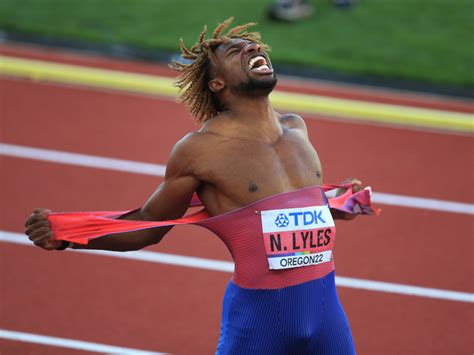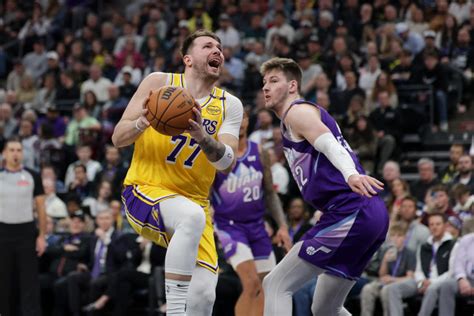
Five golfers, including two-time PGA Tour winner Sam Burns, have withdrawn from this week’s Travelers Championship, delivering a significant blow to the field just days before the tournament tees off at TPC River Highlands in Cromwell, Connecticut. Burns cited personal reasons for his withdrawal, while fellow tour members Keegan Bradley, Russell Henley, Viktor Hovland, and Michael Thorbjornsen also pulled out.
The withdrawals, announced in quick succession, have prompted considerable discussion within the golf community, raising questions about potential factors influencing the players’ decisions, ranging from fatigue and injury concerns to strategic scheduling considerations ahead of upcoming major championships and the FedExCup Playoffs. While Burns’ reason was specified as “personal,” the other withdrawals were not immediately accompanied by detailed explanations, leaving room for speculation and analysis.
Sam Burns’ Withdrawal: A Personal Matter
Sam Burns, ranked 20th in the Official World Golf Ranking, was a notable contender for the Travelers Championship. His absence is attributed to personal reasons, as stated in the official announcement. Burns, who has five PGA Tour victories, including the 2021 Sanderson Farms Championship and the 2022 Charles Schwab Challenge, has been a consistent performer on the tour. His withdrawal leaves a void, especially given his recent form and competitive drive. The specifics of the personal reasons were not disclosed, respecting the privacy of the player. This sudden departure is a loss for fans and fellow competitors alike, as Burns is known for his exceptional skill and sportsmanship on the course.
Keegan Bradley’s Absence: A Local Disappointment
Keegan Bradley’s withdrawal is particularly disappointing for local fans, as he is a New England native and has enjoyed considerable support at the Travelers Championship in past years. Bradley, the 2011 PGA Champion and a six-time PGA Tour winner, has a strong connection to the region and has often expressed his enthusiasm for playing in front of a home crowd. While the exact reason for his withdrawal remains unspecified, his absence will undoubtedly be felt by the tournament’s attendees. His performance at major championships and his standing in the FedExCup rankings usually make him a significant draw for the event. Bradley’s decision to withdraw adds to the unexpected changes in the tournament lineup, creating both challenges and opportunities for other players in the field.
Russell Henley’s Decision: Strategic or Health-Related?
Russell Henley, another accomplished golfer, has also withdrawn from the Travelers Championship. Henley’s absence raises questions about whether his decision is strategic, related to health concerns, or influenced by other factors. Henley, a four-time PGA Tour winner, is known for his accurate ball-striking and consistent play. His participation would have added depth to the competition, making his withdrawal a notable event. With the lack of a specified reason for his departure, speculation is rife among golf analysts and fans. Whether it’s due to managing his schedule, addressing a minor injury, or attending to personal matters, Henley’s decision has reshaped the dynamics of the tournament.
Viktor Hovland’s Withdrawal: Fatigue and Schedule Management?
Viktor Hovland, the world’s No. 6-ranked golfer, has also withdrawn from the Travelers Championship. Hovland’s absence is a significant blow to the tournament’s star power. The Norwegian golfer has had a busy schedule recently, competing in several high-profile events. Fatigue and the need for rest could be potential factors influencing his decision to withdraw. Hovland, known for his powerful ball-striking and charismatic personality, has become a fan favorite on the PGA Tour. His decision underscores the physical and mental demands placed on top-ranked golfers, who must carefully manage their schedules to maintain peak performance. The specifics surrounding his withdrawal were not released.
Michael Thorbjornsen’s Exit: Injury Concerns and Recovery?
Michael Thorbjornsen, a promising young golfer, has also withdrawn from the Travelers Championship. Thorbjornsen’s departure raises concerns about potential injury issues or the need for recovery time. As an up-and-coming player, Thorbjornsen’s participation was highly anticipated, especially given his potential to make a significant impact. His withdrawal serves as a reminder of the physical challenges faced by golfers, particularly when navigating the demands of competitive play. The details surrounding his withdrawal were not immediately disclosed.
Impact on the Travelers Championship Field
The withdrawal of these five golfers has significantly impacted the field at the Travelers Championship. Their absence creates opportunities for other players to step up and contend for the title. The tournament, known for its competitive atmosphere and strong field, will proceed with a revised lineup. Tournament organizers are now focused on ensuring a smooth and successful event, despite the unexpected changes. The withdrawals have also generated increased interest among fans and media, as they speculate on the potential implications for the tournament’s outcome.
The Broader Context: PGA Tour Scheduling and Player Well-being
The recent withdrawals highlight the broader challenges of PGA Tour scheduling and the importance of player well-being. The tour’s demanding schedule, with a series of high-profile events, can take a toll on players’ physical and mental health. Balancing competitive commitments with the need for rest and recovery is a constant challenge for professional golfers. The PGA Tour has been increasingly attentive to these issues, implementing measures to support player well-being and promote sustainable performance. These withdrawals underscore the ongoing need for a balanced approach to scheduling that prioritizes the long-term health and success of its members.
Tournament Preview: Key Players to Watch
Despite the withdrawals, the Travelers Championship still boasts a strong field of talented golfers. Key players to watch include Scottie Scheffler, Rory McIlroy, Patrick Cantlay, and Xander Schauffele, among others. These top-ranked golfers are expected to contend for the title and deliver exciting performances for the fans. The tournament’s challenging course and competitive atmosphere will provide a compelling test for the players, as they vie for victory at TPC River Highlands.
The Course: TPC River Highlands
TPC River Highlands is a challenging par-70 course known for its tight fairways, undulating greens, and strategic bunkering. Designed by Pete Dye, with renovations by Bobby Weed, the course places a premium on accuracy and precision. Players must navigate the course’s demanding layout, making smart decisions and executing precise shots to score well. The course’s signature holes, particularly the scenic stretch along the Connecticut River, provide both challenges and opportunities for dramatic moments. TPC River Highlands has been the site of numerous memorable performances and is considered a favorite among PGA Tour players.
Fan Experience and Tournament Activities
The Travelers Championship offers a comprehensive fan experience, with a variety of activities and amenities for spectators. Fans can enjoy watching the world’s best golfers compete up close, while also participating in interactive exhibits, enjoying food and beverages, and engaging with sponsors and exhibitors. The tournament’s vibrant atmosphere and family-friendly environment make it a popular destination for golf enthusiasts of all ages. Tournament organizers are committed to providing a memorable experience for all attendees, ensuring a successful and enjoyable event.
Historical Significance of the Travelers Championship
The Travelers Championship has a rich history dating back to 1952, making it one of the oldest and most prestigious events on the PGA Tour. Over the years, the tournament has been won by many of golf’s legendary figures, including Arnold Palmer, Phil Mickelson, and Bubba Watson. The tournament has a long tradition of supporting charitable causes, raising millions of dollars for local communities and organizations. The Travelers Championship continues to be a significant event on the PGA Tour, showcasing the best in golf while making a positive impact on the surrounding region.
The Economic Impact of the Tournament
The Travelers Championship has a significant economic impact on the state of Connecticut, generating millions of dollars in revenue for local businesses and communities. The tournament attracts thousands of visitors each year, boosting tourism and supporting the hospitality industry. The event also provides employment opportunities for local residents, contributing to the region’s economic growth. The Travelers Championship is a valuable asset for the state of Connecticut, both economically and socially.
FAQ: Frequently Asked Questions
-
Why did Sam Burns withdraw from the Travelers Championship?
Sam Burns withdrew from the Travelers Championship due to personal reasons, as stated in the official announcement. The specific details of these reasons were not disclosed to respect his privacy.
“Sam Burns has withdrawn from the Travelers Championship due to personal reasons,” as per the official statement.
-
Which other golfers withdrew from the tournament?
Besides Sam Burns, Keegan Bradley, Russell Henley, Viktor Hovland, and Michael Thorbjornsen also withdrew from the Travelers Championship. The reasons for their withdrawals, apart from Burns, were not immediately specified.
-
What impact do these withdrawals have on the tournament field?
The withdrawals significantly impact the tournament field, creating opportunities for other players to step up and contend for the title. The absence of these golfers, particularly Sam Burns and Viktor Hovland, alters the competitive landscape and may influence the tournament’s outcome.
-
Is there a potential reason behind Viktor Hovland’s withdrawal?
While the exact reason was not provided, Viktor Hovland, ranked No. 6 in the world, might have withdrawn due to fatigue and the need for rest, given his busy recent schedule. Top-ranked golfers often manage their schedules carefully to maintain peak performance.
-
How does the Travelers Championship contribute to the local community?
The Travelers Championship has a significant economic impact on Connecticut, generating revenue for local businesses, boosting tourism, providing employment opportunities, and supporting charitable causes. The tournament has a long tradition of raising millions of dollars for local communities and organizations.
Expanded Analysis: Potential Factors Behind the Withdrawals
The simultaneous withdrawals of five golfers from the Travelers Championship invite deeper analysis into the potential factors that may have influenced these decisions. While Sam Burns cited “personal reasons,” the lack of specific explanations for the other withdrawals necessitates a more comprehensive examination of the various considerations that professional golfers face.
1. Player Fatigue and Burnout
The PGA Tour schedule is notoriously demanding, requiring players to compete in a series of high-pressure events with minimal downtime. The constant travel, rigorous practice routines, and intense competition can lead to both physical and mental fatigue. Players often need to make strategic decisions about which tournaments to prioritize and which to skip in order to manage their energy levels and avoid burnout.
Viktor Hovland, for example, is a prime candidate for potential fatigue. As one of the world’s top-ranked golfers, he has likely been competing in numerous high-profile events in recent weeks and months. The cumulative effect of this demanding schedule could necessitate a period of rest and recovery.
2. Injury Concerns and Physical Health
Injuries are a common occurrence in professional golf, as players subject their bodies to repetitive and strenuous movements. Even minor injuries can significantly impact a golfer’s performance and ability to compete. Players may choose to withdraw from tournaments in order to address injury concerns and prevent further aggravation.
Michael Thorbjornsen’s withdrawal, in particular, raises questions about potential injury issues. As a younger player, he may be more susceptible to injuries as he adapts to the demands of the professional game. It is possible that he is dealing with a minor ailment that requires rest and rehabilitation.
3. Strategic Scheduling and Major Championship Preparation
The PGA Tour calendar is structured around the four major championships, which are considered the most prestigious and important events in golf. Players often plan their schedules with the goal of peaking for these major championships. They may choose to skip certain tournaments in order to rest and prepare for the majors.
The Travelers Championship takes place relatively close to the Open Championship, also known as the British Open, one of the four major championships. Players who are planning to compete in the Open Championship may choose to withdraw from the Travelers Championship in order to travel to the UK and acclimatize to the different conditions.
4. Personal and Family Matters
Professional golfers often face personal and family matters that can impact their ability to compete. These may include family emergencies, illnesses, or other personal obligations. Players may choose to withdraw from tournaments in order to attend to these matters and prioritize their personal lives.
Sam Burns’ withdrawal, which was attributed to “personal reasons,” likely falls into this category. While the specific details were not disclosed, it is reasonable to assume that he is dealing with a personal matter that requires his attention.
5. Course Suitability and Tournament Strategy
Some players may choose to withdraw from tournaments based on course suitability and tournament strategy. Different golf courses favor different playing styles, and players may choose to focus on tournaments that are better suited to their strengths. Additionally, players may have specific goals for the season and may choose to prioritize certain tournaments over others in order to achieve those goals.
The Role of the PGA Tour in Supporting Player Well-being
The PGA Tour has recognized the importance of player well-being and has implemented several measures to support its members. These include providing access to medical and fitness professionals, offering mental health resources, and promoting a culture of work-life balance. The tour has also made adjustments to the schedule in recent years to reduce travel demands and provide players with more opportunities for rest and recovery.
However, the demanding nature of the PGA Tour schedule continues to pose challenges for players. The tour is constantly evaluating its policies and programs to ensure that it is providing the best possible support for its members.
Impact on Tournament Attendance and Viewership
The withdrawal of prominent players can have a negative impact on tournament attendance and viewership. Fans are often drawn to tournaments by the opportunity to see their favorite players compete. When those players are absent, it can reduce the appeal of the event.
Tournament organizers are aware of this issue and take steps to mitigate the impact of withdrawals. They may offer ticket discounts, promote other players in the field, and create a more engaging fan experience.
The Future of PGA Tour Scheduling
The recent withdrawals highlight the ongoing debate about the optimal PGA Tour schedule. There is a growing consensus that the schedule is too demanding and that it needs to be adjusted to better support player well-being.
Potential changes to the schedule could include reducing the number of tournaments, extending the off-season, and providing players with more flexibility to choose which events to play. The PGA Tour is currently exploring these and other options as it seeks to create a more sustainable and player-friendly schedule.
Conclusion: A Dynamic and Evolving Landscape
The world of professional golf is constantly evolving, with players, tournaments, and schedules all subject to change. The recent withdrawals from the Travelers Championship serve as a reminder of the complex factors that influence player decisions and the ongoing challenges of managing a demanding career. As the PGA Tour continues to evolve, it will be important to prioritize player well-being and create a schedule that is both competitive and sustainable. The tournament is sure to provide an exciting experience for both players and fans.









